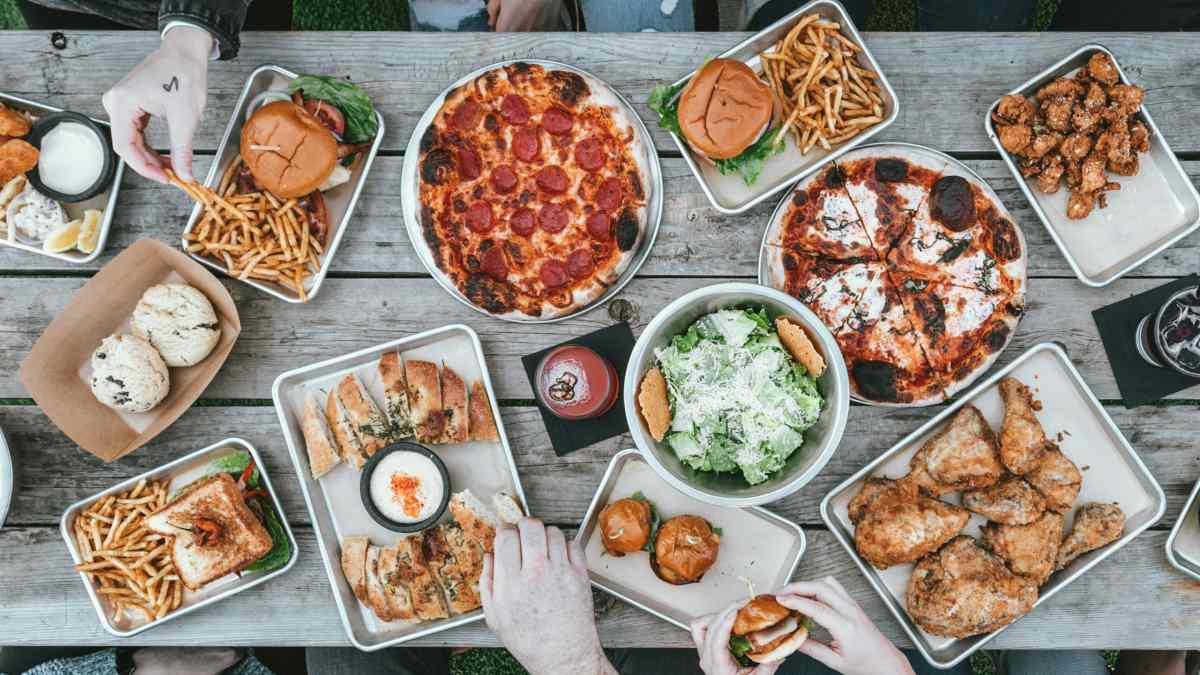
Why Your Food Choices Say More About Your Personality Than You Think
Does liking sweets make you sweet? A psychologist explains the secret link between our tastebuds and our personalities.

By Mark Travers, Ph.D. | February 12, 2024
If you could only eat foods of a single flavor for the rest of your life, what would you choose? Presented to a number of people, the answers you'd hear to this question would vary. Some would be content with only eating salty dishes for the rest of their life, while others might be happy with a life filled only with sweet things.
From sweet and sour to spicy and salty, our food preferences are unique. However, psychological research suggests that these habits and preferences aren't only to do with our taste buds. Studies show that our palates and our personalities have an intriguing link, and that our personal flavor profiles may also speak volumes about who we are.
What Your Food Preferences Say About You
Psychological research suggests that our personalities not only inform our favorite flavors, but they may also play a role with the healthiness of our dietary choices. One study from the International Journal of Preventive Medicine aimed to explore the associations between personality traits and dietary habits, as well as food preferences.
In terms of food preferences, the personality traits listed below showed vast differences in preferences for certain flavors and foods:
- Neuroticism correlated with a preference for salty, sour and fatty foods, and negatively with milk and dairy products.
- Contrastingly, extraversion was linked to preferences for fast foods, ice cream, chocolate and cacao.
- Openness, on the other hand, correlated negatively with fruits, but positively with meats and sweet treats like cookies and cake.
- Agreeableness showed a negative relation to soft drinks and sweetened fruit juices.
- Conscientiousness had a positive correlation with preferences for dairy products, vegetables and nuts, but a negative relationship with salty foods and sweet treats.
The connection between our personalities and taste preferences adds yet another layer of intrigue to our understanding of human behavior. The idea that our individual traits can influence the flavors we are drawn to and our dietary habits is a testament to the complexity of our psychological makeup. This revelation not only highlights the interesting relationship between our mental and physical selves, but also underscores the diverse nature of our relationships with food.
How Your Personality Influences Your Diet
Further research shows that our personalities also inform the health quotient of our food choices, our food-related impulsivity and even our responses to hunger cues. A study from Appetite sheds light on the connection between personality traits and dietary behaviors, revealing a dynamic that goes beyond taste preferences.
A notable discovery was the association between hostility and anxiety-proneness with a greater likelihood of continuing to eat even when full. Individuals exhibiting these traits seemed to struggle with regulating their eating habits, showcasing a potential link between emotional states and the persistence of unhealthy dietary practices.
Conversely, the study illuminated the positive influence of sociability and low impulsivity on dietary habits. Those with sociable and measured personalities demonstrated a higher tendency to monitor and control their dietary intake and body weight. This suggests that certain personality traits may contribute to a heightened awareness and conscientiousness regarding one's eating behaviors, ultimately influencing healthier choices and weight management.
Intriguingly, immaturity, aloofness, self-consciousness and self-gratification were associated with greater susceptibility to hunger and a lack of persistence in resisting unhealthy snacks and alcohol consumption.
Seemingly, our personality traits influence not only our eating behaviors in response to hunger, but also the level of discipline and conscious decision-making involved in choosing healthier options over indulgent ones.
How To Use Food As A Tool For Personal Growth
Understanding the profound connection between our personality traits and dietary habits allows us to aim for healthier living. The research findings offer a unique opportunity for individuals to tailor their eating behaviors in alignment with their inherent characteristics, developing a more conscious and personalized approach to food consumption:
- Emotional eating awareness. Emotional eating, often linked to high levels of neuroticism, can be a challenging behavior to overcome. To mitigate the urge to turn to food in moments of stress or negative emotions, individuals can develop alternative coping mechanisms. Engaging in physical activity, such as a brisk walk or a workout, serves as an effective outlet for stress. Mindfulness practices, such as meditation or deep breathing exercises, can help individuals become more aware of their emotional state and make intentional choices rather than succumbing to impulsive eating.
- Conscious eating. Striving for low impulsivity in monitoring and controlling dietary intake can be transformative. Conscious eating involves paying deliberate attention to the act of eating, which includes being mindful of portion sizes, savoring each bite and minimizing distractions during meals. Practicing mindful eating allows individuals to connect more deeply with their food, fostering a heightened awareness of flavors and textures. By embracing a slower, more deliberate pace, individuals can better recognize satiety cues and develop a healthier relationship with food.
Conclusion
Our food preferences, much like our personalities, showcase diversity. Each of our unique and deliberate bites serve as a personal form of self-expression, underscoring the care we invest in choosing and relishing our meals. By being intentional with our eating habits, our food choices act as more than just sustenance; they become an expression of the love we give ourselves. Whether savoring the comfort of the familiar or trying out new tastes, every dining experience can become a mindful honoring of our distinct selves and tastes through self-awareness and intention.
Concerned if your eating patterns might be problematic? Take this psychological assessment to gain clarity: Eating Attitude Test
A similar version of this article can also be found on Forbes.com, here.
